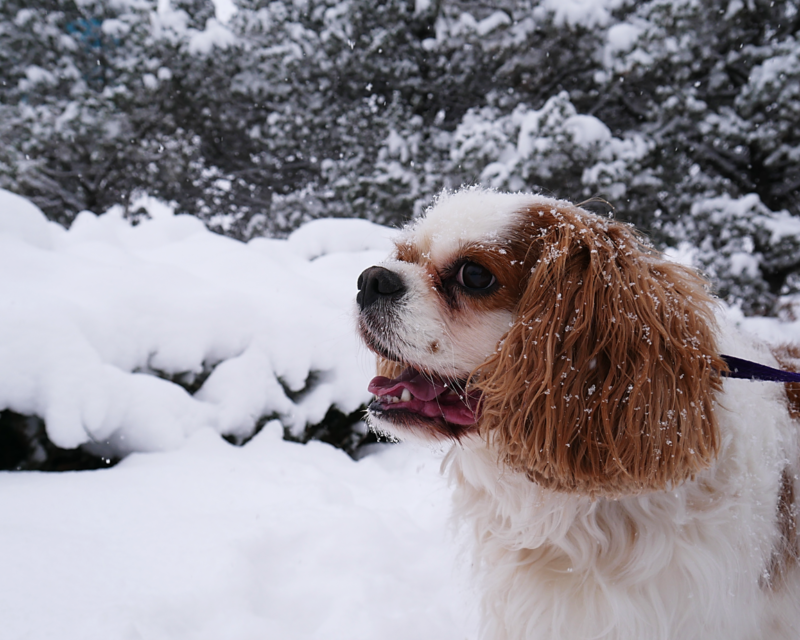
Temperatures are starting to get colder for the winter, so here are some pet safety tips!
Keep your pets inside whenever possible. As a general rule, if it is too cold for you to be outside, then it is too cold for your pets.
- If your dog is an outside dog, we recommend a warm, waterproof shelter that is raised up a few inches off the ground to keep them warm.
- Make sure your home is properly pet-proofed. Use caution with fires and space heaters. Have your furnace checked, and make sure your carbon monoxide detectors are working.
- When you take your dog outside for a walk or let them out in the backyard for a short time, be sure to wipe off your dog’s legs and stomach to get all the ice, snow, and even salt off him. In fact, that salt can hurt a puppy’s paws, so try to wipe it off as soon as possible.
- Know your pet’s limits. Cold tolerance in animals varies, just like in humans. Pay attention to their behavior, know their tolerance, and adjust accordingly. Does your dog have a long, short, thick, or thin coat? Do they have arthritis, diabetes, or another illness that may affect their ability to regulate their body temperature?
- Know the signs of hypothermia and see your vet if your pets show concerning symptoms. Symptoms include shivering, lethargy, dilated pupils, pale gums, and low heart and breathing rates.
- Always keep your dog on a leash and have current identifying tags on your dog while on walks because the snow masks scents, so he might have a harder time finding his way back to you if he gets lost. Be sure to keep microchip information updated for all pets in case they get lost.
- Never shave your dog down to the skin in colder months, and consider getting a warm doggie sweater for him, especially if you have a short-haired dog. Make sure their sweater or coat stays dry – damp clothing can make your pup colder.
- When starting your car up in the morning, first bang on the hood to make sure no cats or other wildlife have climbed into your engine looking for warmth during the night.
- Antifreeze is poisonous to cats, dogs, and wildlife, so make sure you clean up any spills and keep it stored out of reach.
- If you have to walk your pet in the dark, invest in some reflective clothing for both you and them. Darkness, rain, and snow can cause low visibility and make it harder to be seen.
- Consider leaving your pet at home while you’re out in the cold. Just as you shouldn’t leave animals in hot cars in the summer, your car can feel like a refrigerator in winter. Never leave your pet unattended in a cold car.
Do you see a situation that might not be safe for a pet?
If you have concerns about the conditions a pet is being kept in, please call Animal Law Enforcement at 719-302-8798. We would be happy to investigate the situation.
We receive a high number of calls when winter weather strikes, so thank you in advance for your patience. Here are a few things to be thinking about that will greatly help us prioritize and handle each call correctly:
- What is the address of the pet?
- How long has the pet been outside?
- Do you see any shelter for the pet?
- How is the pet behaving?







